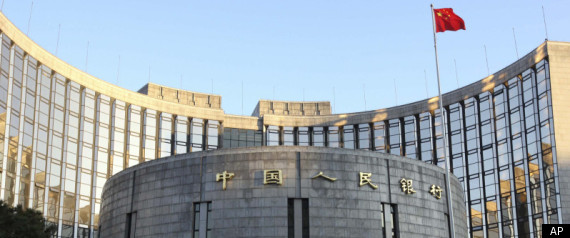 BEIJING -- China, the largest foreign holder of U.S. debt, demanded Saturday that America tighten its belt and confront its "addiction to debts" in the wake of Standard & Poor's decision to downgrade the U.S. credit rating.
BEIJING -- China, the largest foreign holder of U.S. debt, demanded Saturday that America tighten its belt and confront its "addiction to debts" in the wake of Standard & Poor's decision to downgrade the U.S. credit rating.China currently owns $1.2 trillion of U.S. Treasury debt, the largest stake of any central bank. The commentary carried by the state-run Xinhua News Agency was Beijing's first official response to the S&P decision.
"The U.S. government has to come to terms with the painful fact that the good old days when it could just borrow its way out of messes of its own making are finally gone," Xinhua said.
It said the rating cut would be followed by more "devastating credit rating cuts" and global financial turbulence if the U.S. fails to learn to "live within its means."
"China, the largest creditor of the world's sole superpower, has every right now to demand the United States to address its structural debt problems and ensure the safety of China's dollar assets," it said.
Xinhua said the U.S. must slash its "gigantic military expenditure and bloated social welfare costs" and accept international supervision over U.S. dollar issues.
Last month, China's top general, Chen Bingde, also linked America's financial woes to its military budget and asked whether paring back on defense spending wouldn't be the best thing for U.S. taxpayers.
Such comments reflect Beijing's desire that Washington reduce its military presence in Asia. The U.S., rattled by China's military buildup, also routinely chides Beijing for its fast-growing defense spending.
Xinhua also suggested a new global reserve currency might be necessary to replace the dollar, a position China has frequently advocated.
"Mounting debts and ridiculous political wrestling in Washington have damaged America's image abroad," Xinhua said. "To cure its addiction to debts, the United States has to re-establish the common sense principle that one should live within its means."
Jitters over the U.S. handling of its debt problems were also being felt elsewhere in Asia, said Kishore Mahbubani, Singapore's former ambassador to the United Nations.
The dean of Singapore's Lee Kuan Yew School for Public Policy said the last-minute agreement by the U.S. Congress to lift the debt limit and avoid default has policymakers in Asia questioning the stability of U.S. global leadership.
"It's definitely undermined U.S. credibility," Mahbubani said late Friday. "Everyone is wondering if you have such a dysfunctional political process, how can you provide global leadership. It's very dangerous for the world."
Origin
Source: Huffington
No comments:
Post a Comment